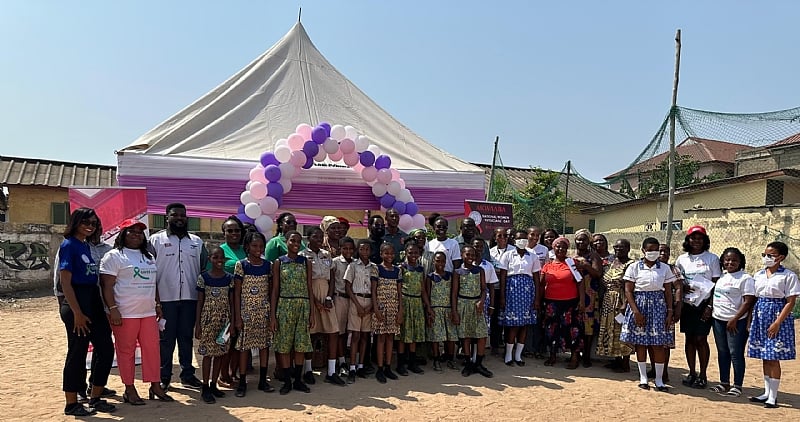Cervical cancer, a significant public health concern, poses a serious threat to women’s health worldwide, particularly in developing countries like Ghana. The Medical Women Association of Ghana (MWAG), recognizing the urgency of the situation, launched a Cervical Cancer Awareness Month campaign to educate women about the disease, promote early screening, and ultimately reduce the incidence of cervical cancer-related deaths. This initiative, held in partnership with the Ablekuma South Sub Metro Health Directorate and supported by Lexta Ghana, underscores the importance of collaborative efforts in addressing critical health issues. The campaign’s theme, “We Can Prevent Cervical Cancer, Get Screened Now,” emphasizes the proactive approach necessary for combating this preventable disease.
Cervical cancer develops when cells in the cervix, the lower part of the uterus connecting to the vagina, undergo abnormal growth, forming a tumor. The primary cause is a persistent infection with the human papillomavirus (HPV), a sexually transmitted virus. While many HPV infections clear on their own, persistent infections with certain high-risk HPV types can lead to cellular changes that eventually progress to cervical cancer. In Ghana, cervical cancer is the second most common cancer among women, with alarming statistics revealing that out of the approximately 2,797 women diagnosed annually, a devastating 1,699 die from the disease. The high mortality rate underscores the critical need for early detection and prompt treatment, attainable through regular screening.
The MWAG campaign targeted women in the Ablekuma South constituency, particularly those at higher risk, such as women who initiated sexual activity at a young age, especially before 18, those with multiple sexual partners, and women living with HIV, whose weakened immune systems increase their susceptibility to HPV persistence and subsequent cervical cancer development. Dr. Ayongo Mate-Kole, a Family Physician and MWAG Chairperson for the Greater Accra Branch, emphasized that cervical cancer often presents no symptoms in its early stages, highlighting the importance of screening, even in the absence of noticeable signs. The campaign provided free screening to 100 women using the Visual Inspection with Acetic Acid (VIA) method, a cost-effective and accessible screening tool for early detection.
The campaign also actively involved men, encouraging them to support the women in their lives by facilitating their access to screening services. Dr. Alfred Oko Vanderpuije, Member of Parliament for Ablekuma South, commended MWAG and its partners for their proactive approach in addressing this critical health challenge and urged participants to spread awareness throughout the community. He also emphasized the importance of enrolling in the National Health Insurance Scheme to ensure financial accessibility to treatment, acknowledging the high costs associated with cervical cancer care. This multi-faceted approach, including community engagement and emphasis on affordable healthcare access, aims to maximize the campaign’s impact.
Furthermore, the Cervical Cancer Awareness Month initiative sought to dismantle the stigma and misconceptions surrounding cervical cancer and screening procedures. Dr. Richardar N.A Taylor Dawson stressed the crucial role of open and honest dialogue to encourage conversations that could lead to life-saving actions. The campaign used creative mediums like plays and poetry recitals to engage the community and reinforce the message about the importance of early and regular screening, ideally every three to five years. This culturally relevant approach aims to resonate with the target audience and promote greater understanding and acceptance of preventive measures.
Targeting the younger generation, the campaign also addressed school pupils and students, advising them to prioritize their education and postpone sexual activity. This proactive approach aims to prevent early exposure to HPV and consequently reduce the risk of future cervical cancer development. The comprehensive nature of the campaign, encompassing education, screening, community engagement, and addressing social stigma, demonstrates a holistic approach to tackling cervical cancer in Ghana. By emphasizing prevention, early detection, and affordable access to treatment, MWAG and its partners strive to significantly reduce the burden of this preventable disease and improve the health and well-being of women in Ghana.


